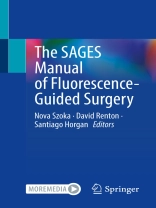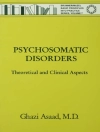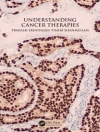Fluorescence-guided surgery (FGS) is defined as a medical imaging technique that uses a fluorescent dye or a near-infrared emitting light source to identify anatomic structures during surgical procedures. In 2020 alone, over 1200 academic articles were published on the topic of fluorescence-guidance surgery, a sign that this modality is making significant inroads into surgical practice. The use of near-infrared imaging and FGS is a rapidly growing modality, allowing surgeons to see more intraoperatively, enhance surgical precision, and improve surgical decision-making and patient outcomes.
This manual provides a comprehensive, state-of-the art review of this field and will serve as a valuable resource for clinicians, surgeons and researchers with an interest in fluorescence-guided surgery, guiding patient management and stimulating investigative efforts. After initial chapters discussing the history of FGS and the current platforms and devices, it presents the most up-to-date data regarding the use of FGS in multiple surgical fields – colorectal, hepatic, endocrine, reconstructive, pediatric, among others – as well as in the treatment of specific conditions such as burns. Chapters are generously illustrated with full-color figures and intraoperative photographs, and selected chapters include video segments.
Access to a comprehensive resource such as this is currently limited by the relatively new inroads that fluorescence-guided technology has made into surgery. The SAGES Manual of Fluorescence-Guided Surgery fills this gap in the literature.
Tabela de Conteúdo
History & Science of Immunofluorescence.- Current Fluorescence-guided Platforms & Devices.- Use of Fluorescence Guidance in Colorectal Surgery.- Use of Fluorescence Guidance in Cholecystectomy.- Use of Fluorescence Guidance in Hepatic Surgery.- Use of Fluorescence Guidance in Endocrine Surgery.- Use of Fluorescence Guidance in Bariatric Surgery.- Use of Fluorescence Guidance Breast Reconstruction.- Use of Fluorescence Guidance in Plastic & Reconstructive Surgery.- Use of Fluorescence Guidance in Burn Surgery.- Use of Fluorescence Guidance in Trauma & Acute Care Surgery.- Use of Fluorescence Guidance Pediatric Surgery.- Use of Fluorescence Guidance in Vascular Surgery.- Use of Fluorescence Guidance in Cardiothoracic Surgery.- Use of Fluorescence Guidance in Urologic Surgery.- Use of Fluorescence Guidance in Gynecology.- Future of Immunofluorescence, Augmented Reality (CT overlay) & Image-guided surgery
Sobre o autor
Nova Szoka, MD, Department of Surgery, West Virginia University, Morgantown, WV, USA
David Renton, MD, Division of General Surgery, Ohio State University, Columbus, OH, USA
Santiago Horgan, MD, Department of Surgery, University of California – San Diego, San Diego, CA, USA












